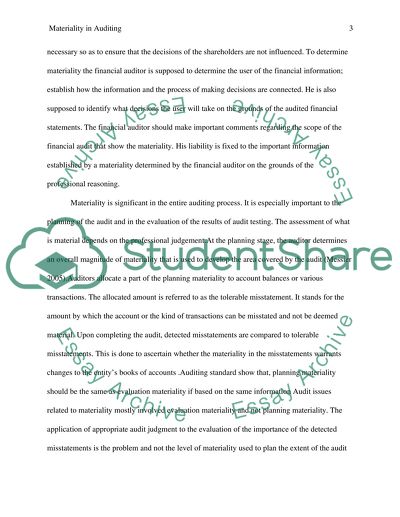Cite this document
(“Materiality in Auditing Essay Example | Topics and Well Written Essays - 1750 words - 1”, n.d.)
Materiality in Auditing Essay Example | Topics and Well Written Essays - 1750 words - 1. Retrieved from https://studentshare.org/finance-accounting/1672149-materiality-in-auditing
Materiality in Auditing Essay Example | Topics and Well Written Essays - 1750 words - 1. Retrieved from https://studentshare.org/finance-accounting/1672149-materiality-in-auditing
(Materiality in Auditing Essay Example | Topics and Well Written Essays - 1750 Words - 1)
Materiality in Auditing Essay Example | Topics and Well Written Essays - 1750 Words - 1. https://studentshare.org/finance-accounting/1672149-materiality-in-auditing.
Materiality in Auditing Essay Example | Topics and Well Written Essays - 1750 Words - 1. https://studentshare.org/finance-accounting/1672149-materiality-in-auditing.
“Materiality in Auditing Essay Example | Topics and Well Written Essays - 1750 Words - 1”, n.d. https://studentshare.org/finance-accounting/1672149-materiality-in-auditing.


